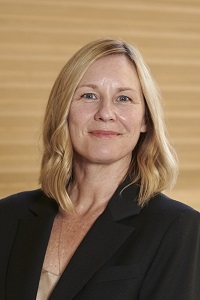Clark is the director of the Center for Reproductive Science, Health and Education at the University of California. She studies reprogrammed stem cells to rebuild tissue and restore fertility after cancer therapy.

Professor Amander Clark
Don Liebig
Professor Clark has been conducting research on human stem cells at the University of California (UCLA) since 2006 to understand cellular and molecular basis of germline cell development. She is the director of the Center for Reproductive Science, Health and Education. The goal of her research is to use stem cells and regenerative medicine approaches to understand human reproduction and fertility and to develop the technology of in vitro gametogenesis (IVG). The results could restore fertility after cancer therapy. To do this, Clark uses technologies such as stem cell differentiation and organ reconstitution
Clark's research on the germline and in vitro gametogenesis is internationally recognized. She has published more than a hundred research articles and received many awards, such as from the International Society for Stem Cell Research.
Further information: https://clark.mcdb.ucla.edu/
An Opportunity to Restore Reproductive Health
Infertility is a disease of the reproductive and/or endocrine systems defined as an inability to get pregnant after 12 months of regular unprotected sexual intercourse. In 2023 the World Health Organization released the most comprehensive analysis of world-wide infertility rates revealing that infertility affects one out of every six people. Caring for people with infertility involves the use of assisted reproductive technology, with in vitro fertilization (IVF) being one of the most common approaches used by couples and individuals to build a family either as a single parent, following an infertility diagnosis, or when experiencing social infertiliy. IVF success rates for a women under the age of 35 are around 50%. With increasing maternal age, IVF success rates decline with the biological basis of this phenomenon associated with an age-related decline in oocyte quality and number. The reason for low IVF success rates for women under the age of 35 is unclear and can only be improved by more research using human gametes and embryos. Human gamete and embryo reserach occurs under strict regulatory oversight. In some jurisdictions this is regulated at the National level (for example in the UK and Australia). In other regions, local jurisdictions are responsible for regulatory oversight of this research, for example institutional IRBs. The generation of embryo models from pluripotent stem cells has the potential to serve as an important alternative to the use of IVF-embryos in research. However, verifying the quality of the embyro models still requires comparative analysis with IVF embryos, at least in the beginning. In summary, improving IVF care requires a better understanding of human embryos and gametes. Without this fundamental knowledge, cell-based treatments for infertiliy are unlikely to improve in the future.